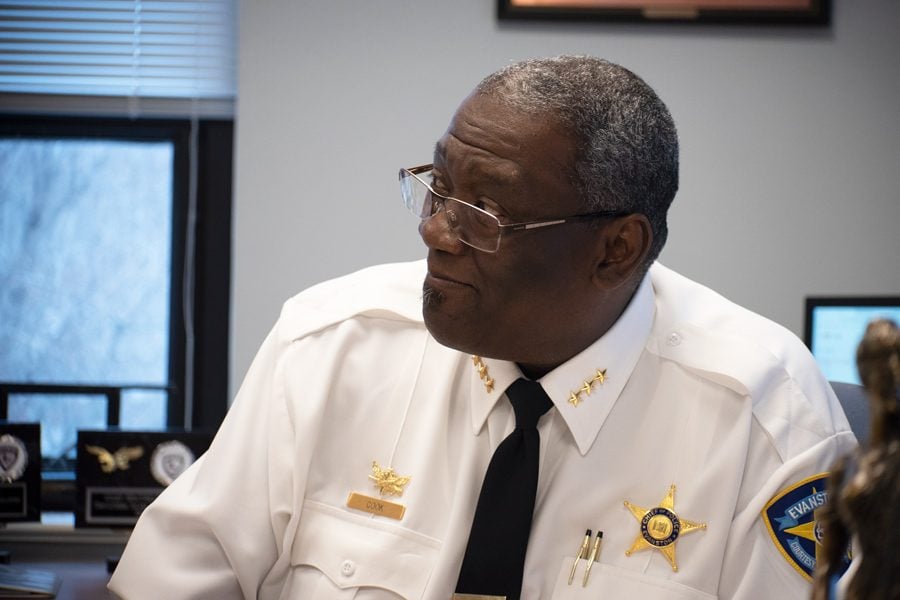City officials talk police calls for service in latest Q&A
File photo by Christopher Vazquez
Evanston Police Chief Demitrous Cook. The mayor’s sixth discussion on policing examined where and how often police are called for duty.
August 10, 2020
City officials broke down police calls for service in the most recent of Mayor Steve Hagerty’s virtual sessions on policing.
At the sixth Q&A in the series, Hagerty emphasized the need for comprehensive data analysis to make decisions about the police department’s future.
“If you really want to understand what our officers are doing… it’s critically important we understand the data,” Hagerty said.
While Hagerty conceded the city had not yet completed that analysis, city officials shared other data.
The police desk received 51,758 calls for service in 2019, according to Evanston Police Department Assistant Communications Coordinator Christopher Voss. Parking complaints were the leading cause for those calls, Voss said, followed by accidents, wellbeing checks and nuisance complaints.
Officials appeared more open to moving some police services to other city departments. Hagerty suggested officers didn’t necessarily have to respond to the city’s 231 incidences of leaf blower violations, and Evanston Police Chief Demitrous Cook said community service officers could be dispatched to calls like an auto theft that had “gone cold.”
Ald. Eleanor Revelle (7th), who chairs the human services committee tasked with reviewing police services, touted an “alternative emergency response system” used in Eugene, Oregon, to respond to nonviolent issues like homelessness and substance abuse. The Eugene program keeps a medic and crisis worker on call in lieu of police officers for these incidences.
“We would be giving a better service to residents who are finding themselves in these crisis situations,” Revelle said.
As with previous sessions, the discussion of EPD and its services remained largely positive. Cook claimed his department had certified 92 of its roughly 150 officers in a 40-hour program that trained them to respond to sensitive or high-risk situations, such as suicide concerns. He praised EPD as “way ahead of the curve.” According to Cook, 911 dispatchers prioritize sending these officers to more sensitive calls.
Cook repeated what other city officials have previously said: that residents rely excessively upon the 911 system.
“We find many adult people don’t know what kind of situation to call 911 in,” Cook said, adding the department is working on an instructional video with the Moran Center for Youth Advocacy to better educate residents on their use of city services.
Cook also explained his department’s system of patrols. EPD has eight patrol areas based on population, Cook said, where officers take part in “randomized” patrols of their area. The department increases patrols in areas where major crimes have recently occurred; Green cited a pair of homicides in patrol beat 77, which roughly corresponds with the Fifth Ward west of Green Bay Road. The department increased the number of patrol cars as well as added special units to the area.
“We’re trying to make people feel safe in their daily lives,” Cook said.
Email: [email protected]
Twitter: @joshuajirvine
Related stories:
— Mayor Hagerty discusses complaint process during policing Q&A
— Human Services committee reviews police services and response models
— Citizen Police Review Commission examines citizen complaint process in first meeting


